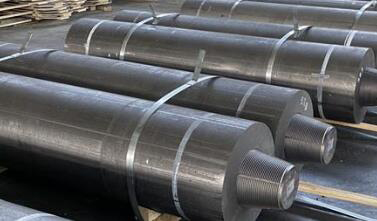Why is graphite used as a lubricant and as an electrode?
Graphite is used as a lubricant and as an electrode in various applications due to its unique physical and chemical properties. Here's why:
Lubricant:
Slippery Structure: Graphite has a slippery, layered structure due to weak forces between its layers. This structure allows the layers to slide over each other easily, providing lubricating properties.Low Friction: The weak van der Waals forces between the layers result in low friction between them, making graphite an effective dry lubricant.
Electrode:
Conductivity: Graphite is an excellent conductor of electricity. Its carbon atoms are arranged in hexagonal lattice structures, and each carbon atom is bonded to three others, forming a network of delocalized electrons that can carry an electric current.Thermal Stability: Graphite is stable at high temperatures, allowing it to withstand the conditions present in various electrical applications.
Chemical Inertness: Graphite is chemically inert, meaning it does not easily react with other substances. This property is important for maintaining electrode stability and preventing chemical reactions that could degrade performance.

Applications:
Lubrication:
Graphite is used as a dry lubricant in situations where conventional liquid lubricants may not be suitable, such as in high-temperature environments, vacuum systems, or where contamination by conventional lubricants is undesirable.
Electrodes:
Graphite electrodes are used in various applications, including:
Electrolysis: Graphite electrodes are employed in electrolytic processes, such as the production of aluminum, chlorine, and other metals.Batteries: Graphite is used as an electrode material in batteries, particularly in lithium-ion batteries.
Electrical Discharge Machining (EDM): Graphite electrodes are used in EDM, a machining process where material is removed from a workpiece by a series of rapidly recurring electrical discharges between the electrode and the workpiece.
In summary, graphite's unique combination of lubricating properties, electrical conductivity, thermal stability, and chemical inertness makes it suitable for diverse applications ranging from lubrication to serving as electrodes in various industrial processes.





